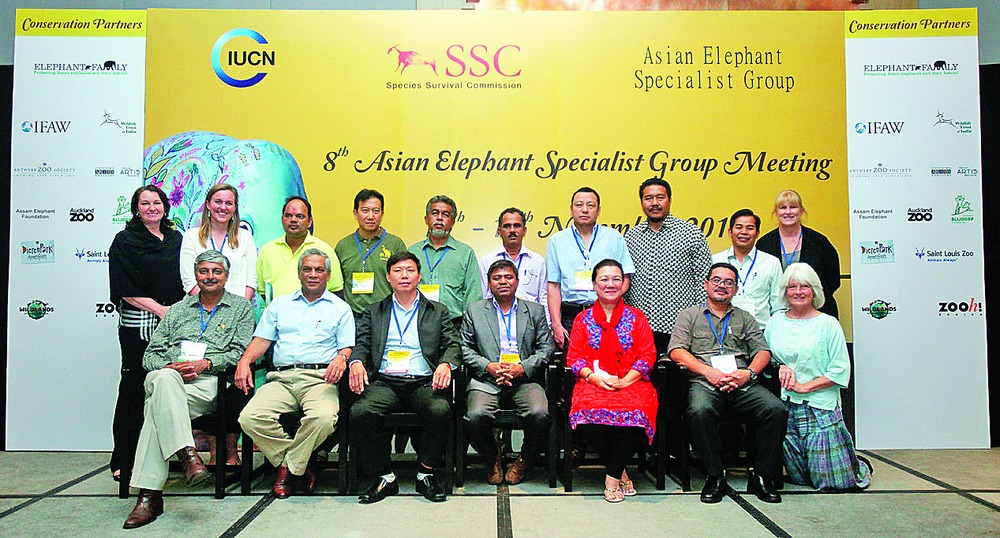
Guwahati, Nov. 12: The directorate of Project Elephant has requested the Asian Elephant Specialist Group to map the current migration pattern of elephants by radio collaring and satellite tracking.
This was said by Project Elephant director R.K. Srivastava at the meeting of the specialist group held here yesterday. The three-day meet, held after 14 years, ended today.
Over 75 experts from 15 countries attended the meeting and discussed the current status of wild and captive Asian elephants and measures for their long-term conservation.
He said mapping the migration pattern of elephants will be useful in identifying the current location of elephant corridors and mitigation of human-elephant conflict which is a major threat to elephant conservation.
Apart from fragmentation of forests, mining activities, development projects, encroachment of elephant habitat, other causes of human-elephant conflict are train accidents, electrocution and poisoning.
Annually in the country, on an average, more than 400 people are killed by elephants and 100 elephants killed by people, mostly in retaliation. In Assam, 54 people were killed by elephants in 2014-15.
Elephants damage 0.8 to 1 million hectares of crops and other properties and thereby affect five to 10 lakh families every year.
On micro-chipping of captive elephants, he said this has been done only once in 2004. Microchips were fixed on 1,500 elephants. "The group may help us and the state governments in procuring, injecting and reading of microchips in captive elephants," he said.
"The Project Elephant division in the ministry of environment, forest and climate change had organised the first Indo-Bangladesh dialogue for trans-boundary conservation of elephants on August 19-20 last year. The recommendations have not been approved by the Bangladesh government so far.
Similarly, our attempts to seek cooperation on issues related to captive and wild elephants with Nepal have not yielded desired results. The group may help us in developing links with neighbouring countries like Bhutan, Burma, Nepal and Bangladesh for conservation and welfare of elephants," he said.
The director general of National Parks and Wildlife Conservation in Nepal has also been requested to extend cooperation for conservation of elephants in India and Nepal.
He said the preparation for elephant census, due next year, has started already.
State governments have been advised to include their financial requirement for conducting the elephant census in their annual plan of operation for Project Elephant for 2016-17.
The census will start in the Northeast by February next year. The estimated population of elephants in the region, according to the 2012 census, is 9,239.











